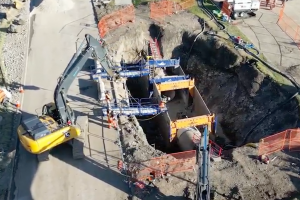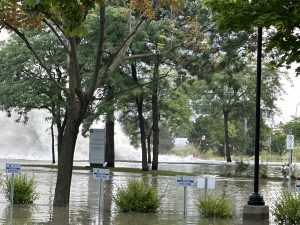Elon Musk is probably the most flamboyant of today’s generation of super-rich people.
He has been criticized for over-promising and the criticism may be justified.
But when push comes to shove, he gets things done.
Earlier this month, he presided over the launch of Falcon Heavy, the first American heavy-lift rocket since the retirement of the Saturn V, which took American astronauts to the moon and back.
Musk’s company, Space X, was the first and still the only company with reusable rocket stages, an idea that gives Space X a huge advantage over its competition.
But with all the whoop-de-doo leading up to the launch, many people may not have heard of another of Musk’s endeavours.
Just two days before Falcon Heavy blasted off, the South Australian government announced it will build what it calls the world’s largest virtual power plant by rolling out solar panels and Tesla batteries to at least 50,000 homes. Tesla is another of Musk’s companies.
Tesla pioneered a storage battery called Powerwall, suggesting that one of those batteries connected to rooftop solar panels could make some homes able to operate off-grid.
It was Tesla’s battery technology that was at the centre of what has become known as the world’s biggest lithium-ion battery in South Australia, a few hours north of Adelaide.
Musk had suggested the idea, but people were skeptical. Finally, Musk took to Twitter where he promised that Tesla would install a 100-megawatt storage battery within 100 days of signing a contract, or the job would be done for free. He not only met the deadline, he beat it by several weeks.
Now, with the storage-battery technology proving itself every day, it’s being used in an initial trial — already underway — of the concept of the virtual power plant. In that trial, a five kW rooftop solar panel system and a 13.5 kWh Tesla Powerwall 2 battery will be installed at no cost in 1,100 public housing properties. The cost will be recovered by selling surplus electricity to the grid.
Then, when those systems are all up and running, an additional 24,000 public housing units will receive the systems.
Depending on the success of these initial phases a wider rollout for private homes is planned for 2019.
Tesla says that, when completed, the 250MW virtual power plant could provide as much capacity as a large gas turbine or coal-fired power plant. And if there is a transmission failure, Powerwalls will cut in to power individual homes.
Tesla says on its website that “Powerwall can detect an outage, disconnect from the grid, and automatically restore power to your home in a fraction of a second.
“As long as the battery has storage in it at the time, you will not even notice that the power went out.”
Power outages have been a politically-charged subject in South Australia since a state-wide blackout in 2016 when storms caused a transmission failure. Australian Prime Minister Malcolm Turnbull appeared to be unsympathetic, blaming the outage on the state’s “overreliance” on renewable energy.
Solar and wind make up about 40 per cent of its power generation which is higher than any of the other Australian states.
Rooftop solar is expected to account for as much as 24 per cent of Australia’s electricity by 2040.
When combined with small-scale batteries as much as 45 per cent of the country’s total power capacity will be located on owners’ properties by then.
South Australian Premier Jay Weatherill, who announced the plant, said it will “use people’s homes as a way to generate energy for the South Australian grid, with participating household’s benefiting for significant savings in their energy bills.”
Outside sources have estimated those bills will decrease by about 30 per cent, all because of Elon Musk — a flamboyant businessman who has much to be flamboyant about.
Korky Koroluk is an Ottawa-based freelance writer. Send comments to editor@dailycommercialnews.com.











Recent Comments
comments for this post are closed